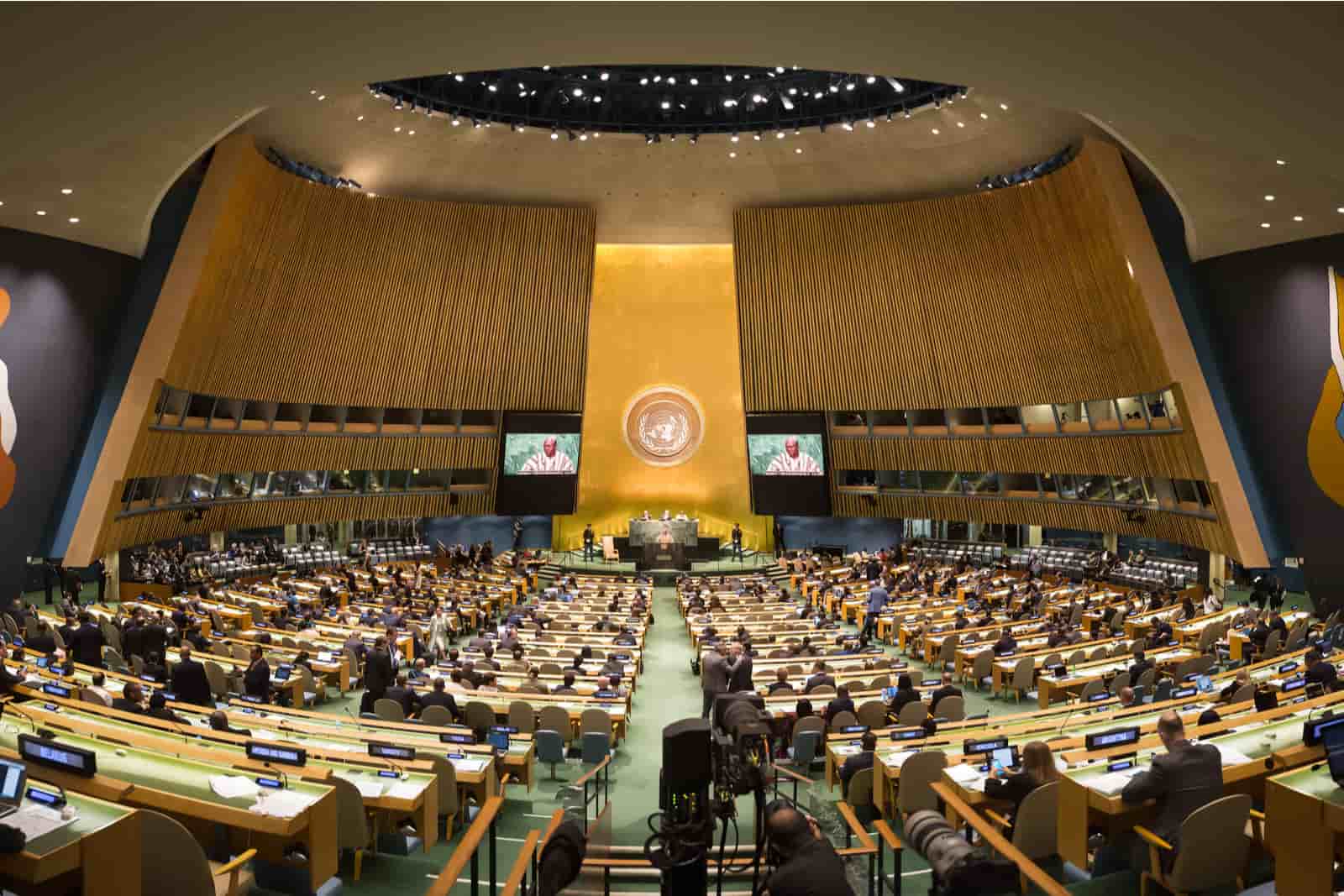WHA : Taiwan matters for health of the world

Source:Shutterstock
Once again, Taiwan was not invited to the 75th WHA in Geneva. Now is the right time to reform these global bodies to accommodate territories like Taiwan irrespective of their national status.
Views
WHA : Taiwan matters for health of the world
By Rajagopal Devaraweb only
♦ Updated daily |Taiwan’s Covid-19 Outbreak
Once again Taiwan expressed regret, disappointment and dissatisfaction at not being invited to the 75th World Health Assembly (WHA) in Geneva, despite widespread international support to invite the democratic Taiwan. It is the seventh year in a row Taiwan with a population of about 23.5 million, and well-managed health systems, has been denied an invite as an observer to the WHA. Interestingly, Taiwan has participated as an observer at the WHA for eight years between 2009 to 2016 when the democratically elected Kuomintang administration had warmer relations with China.
The fact of denial of mere observer-ship to Taiwan brings to the fore two key lessons for the world. First, despite an immense international support and goodwill globally, including the US, Canada, Germany, Japan, and others, China could block Taiwan’s road to WHA repeatedly, as it believes Taiwan’s current establishment doesn’t toe its line of authority. Interestingly, China itself had facilitated the invitation of Taiwan as an observer eight years ago!
Naturally, it reflects on one hand China’s stronghold on international bodies and its ability to skillfully manipulate them as per its convenience. On the other hand, it raises an important question about the conviction of other countries in supporting Taiwan’s cause at the WHA. So as an extended institutional logic, can Taiwan depend on western powers to support it in times of reckoning? Although this year many countries across the globe supported its cause, their ability to negotiate China’s pressure was unsuccessful, given the economic and financial clout it carries and the trade dependency of many countries on China. Secondly, international bodies, though they appear to be free and independent, are still subject to global politics and to pressures and pulls of big donor countries.
While political tensions have persisted between China and Taiwan for decades, on the health front, what are the world and Taiwan losing in the midst of this cross-strait politics of not inviting Taiwan to WHA? Can a fair and acceptable solution be reached to avoid jeopardizing global health and safety by meaningfully engaging with Taiwan?
Sadly, Taiwan is losing out on an opportunity to showcase its exceptional response to the Covid-19 pandemic. The health management practices like rigorous testing strategy and robust border controls evolved in Taiwan in the last two years of the Covid19 crisis would have helped many member states of WHA. These practices combined with other health strategies contributed to some of the lowest infection and death rates in the world. It is naïve to term the demand for the invite as political manipulation with an aim to seek independence through the pandemic.
There are just thirty-eight vaccines approved for general and emergency use around the world by WHO. In the global efforts to develop and distribute an effective vaccine, the contribution of Taiwan is enormous.
As early as August 2021, indigenously developed Medigen covid19 vaccine was rolled out in Taiwan. It is authorized for emergency use in eight countries as of now. Soon after completion of the phase 3 clinical trial, which is in the advanced stage and data analysis by WHO, the vaccine will be internationally distributed. Surely Taiwan’s vaccine efforts will enhance collaboration with WHO which has been working to make vaccines accessible and available to the world, despite vaccine nationalism as a major hurdle. In addition, Taiwan supplemented global efforts in mitigation by extending humanitarian assistance in the form of PPE kits, medication and technical assistance.
The current third wave data in Taiwan indicates a steep rise over the past two months, like in all other countries, it may witness a steep fall in the coming few weeks. However, the response is not a panic-driven knee-jerk reaction of complete lockdowns. Taiwan’s response to the Covid-19 pandemic is well calculated and calibrated depending on the infection situation, which is well received by the public at large.
This is validated by the latest approval rating of President Tsai-Ing-Wen. Policies on quarantine, isolation, and self-health management periods plus testing both PCR and antigen schedules seem to have been synchronized with every spike in infection rate. A total lockdown was avoided, despite the numbers touching 94000 per day at the peak of the current wave so that the public at large is not inconvenienced, life remains near normal, despite the pandemic. Timely review and recalibration of policies were carried out to match up with the increasing/decreasing infection rate. The result of these pandemic policies is visible in data, credibly believable data, for the entire world.
Taiwan isolated itself from the rest of the world by following strict border controls and excellent digital monitoring system, well-equipped health machinery, and timely tracking, tracing, testing, and treatment. Consequently, the first wave was mild, and the second wave and current third wave have witnessed an increased infection rate and deaths.
However, overall numbers and positivity rate were well in control compared to similarly sized countries in the region. As a result, regulations during the pandemic years economies of the world crashed and witnessed negative growth, but Taiwan has maintained a positive economic growth rate of 6.45 percent in FY 2021, a commendable achievement amidst economic gloom all around. Now, during the third wave, Taiwan shifted gears to smoothly move from zero Covid-19 approaches to living-with-the-virus approach. WHA members would have learned from the Taiwan model of pandemic management of switching gears smoothly depending on the intensity of infection.
Similarly, Taiwan’s experiment of rationing face masks and antigen testing kits with price fixation to overcome their shortage and to build in equity principle in the distribution of critical essentials to the general public is a unique and successful model worth sharing with the world community on a WHA forum. The minimum price fixation is a good part of rationing face masks and antigen test kits making them available at an affordable price, at a time when pandemic decisively hit personal incomes.
As opposed to the achievements of Taiwan, which has been blocked for many years by the World Health Assembly, it’s interesting to compare the contributions of China in Covid-19 pandemic management. Despite Omicron variants not being fatal, though highly transmittable, China still continued to practice zero Covid-19 policy for political reasons, instead of learning to coexist with the virus.
The latest round of lockdowns in many cities, including the most populous Shanghai, is a major public health crisis that should have been handled with scientific calibration and utmost medical care, with balance for human dignity and individual freedom. Yet, since day one of the outbreak in Wuhan, the Chinese authorities have adopted a strict lockdown and severe restriction model with little regard for life and livelihood of ordinary residents, instead of a scientific , balanced and humane approach. They have made the pandemic a political issue with party cadres managing lockdowns and impeding the free flow of information. Coexisting with a virus, not the elimination of Covid-19 as practiced by neighboring China, is practical and proved correct not only by the Taiwan experiment but even by the largest democracy, India.
To Increase vaccination momentum, many countries use innovative ways to reach the unreached. Recent studies in the US and India have confirmed drug-related complications and pulmonary, thrombotic, and muscular disorders in many post Covid19 cases. So, while preparing plans for post Covid-19 care complications, health establishments in these countries advised psychological counseling in severe cases. These experiences are worthwhile to share in the global forum for the benefit of other members, which Taiwan will lose out.
There are technical issues in allowing Taiwan to participate, like its status as a country, it is high time WHA, WHO and other international bodies are reformed, so that all territories are represented, heard and their experiences are shared with the world to enhance response to health emergencies and outbreaks.
Imagine a situation, a health emergency happens in Taiwan with global implications, how effectively would the WHA and WHO respond and tackle it, as it is not a member.
So instead of playing politics, keeping the larger good of humanity as a global vision, it is the right time to reform these global bodies to accommodate territories like Taiwan irrespective of their national status.
About the Author

Rajagopal Devara is principal secretary at the Department of Finance, Planning and Development, Government of Maharashtra, India, with experience of handling Covid-19. He is presently a Taiwan Research Fellow with Graduate Institute for Development Studies (GIDS), National Chengchi University, Taipei.
Have you read?
- Still a WHO Outsider, Taiwan's Role in the Global Organization
- The IPEF train has departed. Now transferring to the BTA track
- Updated daily |Taiwan’s Covid-19 Outbreak
Uploaded by Penny Chiang






